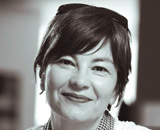 In 2006, Sir Iain Chalmers, one of the founders of the Cochrane Collaboration, accused Asim Kurjak, a former professor at the Zagreb School of Medicine, of repeated plagiarism and criticised the University of Zagreb for its lack of action in dealing with these cases. In his article “Role of systematic reviews in detecting plagiarism: case of Asim Kurjak,” published in the BMJ, Chalmers described in detail how he discovered two instances of scientific plagiarism (between the 1970s and 2002) by one of Croatia’s most famous physicians and how he reported his discoveries to international institutions and the two deans of the Zagreb School of Medicine. The result of his actions was that the International Society of Ultrasound in Obstetrics and Gynaecology expelled Kurjak and his associates for three years. The World Health Organization (WHO) reacted by withdrawing sponsorship for an international conference on ultrasonography that Kurjak was organising, transferring a meeting of the editorial board of the Manual on Ultrasound Diagnostics from Zagreb to Geneva, and excluding Kurjak from it. WHO also suspended him from the directorship of its collaborating centre for a year. Meanwhile the Croatian academic community completely ignored the findings of his breach of scientific ethics.
In 2006, Sir Iain Chalmers, one of the founders of the Cochrane Collaboration, accused Asim Kurjak, a former professor at the Zagreb School of Medicine, of repeated plagiarism and criticised the University of Zagreb for its lack of action in dealing with these cases. In his article “Role of systematic reviews in detecting plagiarism: case of Asim Kurjak,” published in the BMJ, Chalmers described in detail how he discovered two instances of scientific plagiarism (between the 1970s and 2002) by one of Croatia’s most famous physicians and how he reported his discoveries to international institutions and the two deans of the Zagreb School of Medicine. The result of his actions was that the International Society of Ultrasound in Obstetrics and Gynaecology expelled Kurjak and his associates for three years. The World Health Organization (WHO) reacted by withdrawing sponsorship for an international conference on ultrasonography that Kurjak was organising, transferring a meeting of the editorial board of the Manual on Ultrasound Diagnostics from Zagreb to Geneva, and excluding Kurjak from it. WHO also suspended him from the directorship of its collaborating centre for a year. Meanwhile the Croatian academic community completely ignored the findings of his breach of scientific ethics.
The reaction of the Croatian public to Chalmers’s article was tumultuous. What the editors at the BMJ did not know was that, by the time Chalmers’s article was published in 2006, three years had already passed since criminal procedures had been initiated by the State Attorney’s Office against Kurjak. He was charged with covering up medical malpractice that had led to the death of a woman giving birth (the case of the late Dragica Ivankić) and illegal removal of oocytes (without consent) from his patients for the purposes of artificial insemination of other women. The fact that the State Attorney’s Office and a special committee of the Ministry of Health claimed that Kurjak and his team used stolen ovary cells in private clinics to artificially inseminate other women without consent turned the famous doctor into a controversial figure in the eyes of the public in no more than 24 hours. He was acquitted of these charges in 2009, but in 2006 all things related to Kurjak were suddenly interesting, and the news of the charges that came from an international journal became a media blockbuster.
However, the Zagreb School of Medicine showed that it was more eager to deal with Kurjak’s imaginary enemies than with the charges of Kurjak’s plagiarism, and charges were made against the editors of the Croatian Medical Journal, Ana and Matko Marušić. Shortly after, Fiona Godlee, BMJ editor in chief, wrote that “Until the dean of Zagreb’s medical school, Nada Cikes, shows that she takes Kurjak’s offences seriously, the scientific integrity of the whole institution is in question and a cloud will remain over Croatia’s research community.” The medical school’s court of honour concluded that, firstly, the apologies Kurjak and his associates had given to the scientists whose work they plagiarized were “punishment enough,” and that, secondly, with Kurjak’s retirement, no further sanctions were needed.
A full analysis of Kurjak’s entire publication output, by the National Committee for Ethics in Science and Higher Education, was completely ignored during the disciplinary procedure by the medical school, even though the committee discovered and described numerous unethical and questionable publications.
That Fiona Godlee’s prognosis was optimistic is now evident by the reappearance of Kurjak in Croatia’s media, in which he announced the rehabilitation of his reputation in Croatian society. I found out that I had missed the announcement of his appointment as the dean of the faculty for health studies at the private International University in Dubrovnik, as well as the fact that this faculty had signed an agreement with the publicly funded Rijeka School of Medicine. Also, after his retirement, Kurjak had remained an associate of the Zagreb School of Medicine, heading an ultrasound course in Qatar. In the light of the last 10 years of two turbulent court procedures (the case of Dragica Ivankić even led to Kurjak’s first degree conviction to a sentence in jail, but the case immediately went into statute of limitation; in the other case he was acquitted) and international accusations of plagiarism, the dire prophecy of a “cloud” settling over Croatian science is an eerily mild view of the possible future.
Nataša Škaričić, is a professional journalist from Croatian daily, Slobodna Dalmacija.
